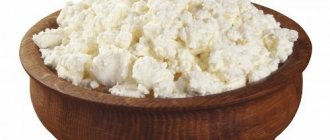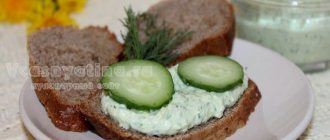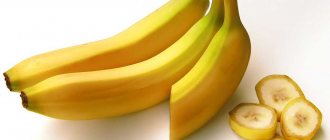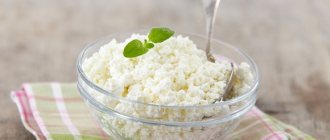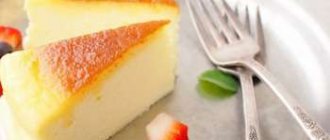12/21/2014 / Dairy products
| Cottage cheese 9%, BJU and calorie content per 100 g of product | |||
| Calorie content 159 kcal | Proteins 16.7 g | Fat 9 g | Carbohydrates 2 g |
Cottage cheese 9% is a specific product in the category of fermented milk products. This is one of the most useful components in the diet of any person, regardless of age, gender, degree of health and lifestyle. Cottage cheese is appropriate in many areas. This useful product is obtained in the process of coagulating milk protein under the influence of a number of reactions and processes with further disposal of excess liquid - whey.
Calorie intake per day
As such, there is no single and generally accepted daily calorie intake. According to the recommendations of the World Health Organization, “energy entering the body (in calories) must be balanced with energy expended.” Thus, your individual calorie intake depends, first of all, on the nature of your work, level of physical activity, gender, age and a number of other factors. However, on the Internet you can find many tables and calculators of unknown origin, offering information on daily values, supposedly based on authoritative sources. We believe that the quality of this information is quite questionable.
The most reliable way to determine individual calorie needs is to simply calculate the energy value of food consumed during the day (or several days). Just record your normal daily diet on paper. Write down what and how much you ate during the day. Calorie content can be directly calculated using information from product labels and using our website. Provided that you are healthy and your weight does not change much with your current diet, the results obtained can be conditionally considered your daily norm.
To lose weight, you need to slightly reduce your daily energy intake. If you maintain your current lifestyle, you will experience a slight calorie deficit because your costs will remain the same. This will lead to the gradual burning of your fat reserves. What exactly the deficit should be is up to you to decide. We strongly advise against increasing it sharply, because... it won't lead to anything good. Reduce your calorie intake gradually and lose weight slowly. This way you won’t have to torture yourself and break down from time to time. And of course, before making any dietary changes, we strongly recommend that you consult with your doctor or qualified dietitian.
Calorie content of cottage cheese - types of cottage cheese - Moscow State Budgetary Institution Polyclinic No. 2
Cottage cheese is a popular fermented milk product that is produced by fermenting milk and then separating the whey.
This is a source of complete protein necessary for the synthesis of musculoskeletal tissue. Good for bones, nervous system, heart and blood vessels. For dietary nutrition, low-fat cottage cheese is used, which is a low-calorie product. There are only 71 calories in 100 grams, but all the beneficial properties are preserved.
Benefits of cottage cheese for human health
If we briefly describe the benefits of cottage cheese, we get three important points:
- Cottage cheese contains vitamins A, B1, B2, C, E, PP and the basic amino acids methionine and tryptophan, which promote hematopoiesis and normalize the activity of the nervous system.
- It also contains beta-carotene, which normalizes metabolism in the body, as well as a large number of microelements necessary for the normal functioning of the human body (potassium, magnesium, iron, zinc, phosphorus, fluorine, selenium, etc.).
- Unlike components of other foods of animal origin, curd protein has neutral acidity and is easily digestible. It uses less gastric juice and enzymes to digest it, so it is suitable even for people with diseases of the gastrointestinal tract and is the basis of many diets.
Types of cottage cheese, their calorie content and nutritional value
According to the method of preparation, cottage cheese is:
- acidic (prepared from skim milk under the influence of lactic acid);
- acid-rennet (with the addition of rennet).
Depending on the fat content of the milk used in the production process, the following varieties of this product are distinguished:
- fat (19 - 23%);
- classic (4 - 18%);
- low-fat (1.8 - 2%);
- low fat (up to 1.8%).
There is also the following classification:
- Home. Cottage cheese, which is prepared at home, can have different degrees of fat content, and therefore different energy value. The calorie content of homemade cottage cheese ranges from 230 to 265 kcal per 100 g. It is very beneficial for the body, but it is unlikely to be suitable for those who want to lose weight.
- Grainy. Granular, which is curd grain with the addition of salted cream, has a significantly lower calorie content per 100 grams: 100 - 150 kcal. It contains a minimal amount of fat (0 - 0.9%) and is widely used in dietary nutrition.
- Calcined. Contains an additive in the form of calcium chloride, with a low calorie content it contains a large amount of protein - up to 60%
The fat content of cottage cheese is directly related to its nutritional properties. Nutritional information for the most common types is presented in the table below.
Type of cottage cheese (100 g) Calories (kcal) Proteins (g) Fats (g) Carbohydrates (g)
| fat content 0% | 78,98 | 15,92 | 0,36 | 2,59 |
| fat content 5% | 116,20 | 15,00 | 5,00 | 2,40 |
| fat content 9% | 154,95 | 16,18 | 8,51 | 2,78 |
| fat content 15% | 183,82 | 15,38 | 12,93 | 1,76 |
| fat content 20% | 165,00 | 12,40 | 12,25 | 2,45 |
| fat content 23% | 301,07 | 9,55 | 21,44 | 16,99 |
The best option for inclusion in the daily diet is cottage cheese with a fat content of 2 - 5%. With a relatively low calorie content, it contains more balanced nutrients than its low-fat counterpart.
Effect on calorie content of products added to cottage cheese
The calorie content of cottage cheese is influenced by the products that are added to it to improve the taste and enhance the beneficial properties. Most often it is eaten with dried fruits, nuts, honey, various types of preserves and jams, fresh berries and fruits, vegetables and herbs.
How many calories are in cottage cheese with sour cream, milk, jam?
The calorie content of the product increases when it is combined with sugar, sour cream, milk or jam. The increase in nutritional value occurs by adding to the nutritional value of cottage cheese, the nutritional value of an additional ingredient. For example, how many calories are in 9 percent cottage cheese with sour cream? The calorie content of such a dish, together with sugar, will ultimately be 168.6 per 100 grams. This number is also not exorbitant and quite acceptable for consumption in the diet every day.
It is also very important to know how many calories are in 200 grams of cottage cheese. The number of calorie units in this amount of product is 206. If you prefer to eat cottage cheese with milk, then the number equal to 202 calories will indicate the number of calories in 9 percent cottage cheese with milk. The benefits of this product are very enormous, so it is simply necessary to consume cottage cheese to improve the well-being and functionality of the body. If you have a sweet tooth, you will need to find out how many calories are in 5 percent cottage cheese with jam. 4 tablespoons of raspberry jam contain approximately 218.4 kilocalories, 5 percent cottage cheese contains 145 kilocalories. The final calorie content of cottage cheese with jam will be 363.4 calorie units per 100 grams of product.
In any case and combination, the calorie content of cottage cheese will be sufficient for a regular snack and satiation of the body. At the same time, many useful substances will enter the body, which will help in various processes of functionality. Cottage cheese has a lot of advantages and qualities:
- Natural and tasty food product;
- Ability to select fat percentage;
- Combination with other components, depending on taste and preference.
Caloric dietary ingredient;
How many calories are in cottage cheese 18, 9, 6, 5, 2, 0 percent, low fat
It is also important to know how many calories are in cottage cheese depending on the percentage of its fat content; on average, there are from 88 kilocalories to 231 calories in 18 percent cottage cheese. This nutritional value is considered very good and healthy even for people who are on a diet. You can eat cottage cheese either alone or in combination with other ingredients and food products.
How many calories are in 9 percent cottage cheese? The calorie content of such a product per 100 grams is 159 calories. This percentage applies to a semi-fat product. It contains high-quality protein, as well as all the necessary minerals. 121 kilocalories is the number that indicates how many calories are in 5 percent cottage cheese. 2 percent cottage cheese has a slightly lower calorie content, namely 103 kilocalories. Considering the data, you already know 100% how many calories are in 2 percent cottage cheese and the percentage of a fattier product. Therefore, you can first draw conclusions about which product is best to use individually.
Calorie content of cottage cheese
Cottage cheese has long been considered one of the best dietary products. It is obtained through the process of fermenting whole milk and is a protein mass that contains a lot of protein, as well as calcium. Cottage cheese is good for bones, nervous system, heart and blood vessels.
For dietary nutrition, low-fat cottage cheese is used, which contains less fat, which means fewer calories - only 71 calories per 100 grams.
However, recently nutritionists have not recommended using such cottage cheese in the diet, since the lack of fat has a bad effect on the body’s condition, and the difference in calorie content of cottage cheese products of different fat content is not so significant.
Calorie content of cottage cheese of different percentages of fat content
cottage cheese 0% – contains 72 calories per 100 grams;
cottage cheese 2% – contains 103 calories per 100 grams;
cottage cheese 8% – contains 138 calories per 100 grams;
cottage cheese 11% – contains 170 calories per 100 grams;
cottage cheese 18% – contains 232 calories per 100 grams;
As you can see, the difference in calorie content of low-fat cottage cheese and cottage cheese with an average 8% fat content is only 60 calories. For 2-3% it is even less. Therefore, it is quite possible to use medium-fat cottage cheese for dietary nutrition.
If you are watching your weight and caloric content of your food, then you should avoid various glazed cheeses. After all, 100 grams of glazed cheese can contain up to 400 calories, and this is already quite a lot.
The use of cottage cheese in dietary nutrition
A large number of diets have been developed based on cottage cheese, for example, the curd-yogurt diet, the curd-banana diet. Due to its high protein content, it is widely used in low-carb diets, such as the popular Dukan diet.
Cottage cheese is well suited for nursing seriously ill people. Many adults who cannot tolerate milk can replace it with cottage cheese. However, it is not recommended to consume more than 200 grams per day.
The site fotodiet.ru considers cottage cheese one of the most important products that should be on the table in every family. It is worth paying attention to the choice of cottage cheese. Currently, there are a large number of fake cottage cheeses that contain vegetable fats, starch, flavorings and preservatives. This product should not be used in food.
What are the benefits of cottage cheese?
– restores the nervous system;
– improves the functioning of the gastrointestinal tract;
– provides the body with useful substances;
– has a beneficial effect on liver function;
– promotes hair growth, strengthens nails.
Why is cottage cheese dangerous?
– individual intolerance;
– expired product;
- chemical additives;
- vegetable fats;
– Escherichia coli;
– high protein content is dangerous for the kidneys.
Table of calorie content of cottage cheese per 100 grams
| Product | Squirrels | Fats | Carbohydrates | Kcal |
| Curd whey | 0.8 | 0.2 | 3.5 | 20 |
| Curd cheesecake | 18.6 | 3.6 | 18.2 | 183 |
| Glazed cheese | 8.5 | 27.8 | 32 | 407 |
| Glazed cheese potato | 7 | 23.4 | 47.6 | 417 |
| Glazed cheese with filling | 9.5 | 21.3 | 36 | 374 |
| Cottage cheese 0% | 16.5 | 0 | 1.3 | 71 |
| Cottage cheese 0.1% | 16.7 | 0.1 | 2 | 76 |
| Cottage cheese 0.2% | 18 | 0.2 | 1.8 | 81 |
| Cottage cheese 0.6% | 18 | 0.6 | 1.8 | 88 |
| Cottage cheese 1.8% | 18 | 1.8 | 3.3 | 101 |
| Cottage cheese 2% low-fat | 18 | 2 | 3.3 | 103 |
| Cottage cheese 4% | 15.7 | 4 | 1.4 | 104 |
| Cottage cheese 5% | 17.2 | 5 | 1.8 | 121 |
| Cottage cheese 5% granular | 12.7 | 5 | 2.4 | 105 |
| Cottage cheese 5% granular with fruits | 10.3 | 5 | 12.5 | 127 |
| Cottage cheese 5% classic | 16 | 5 | 3 | 121 |
| Cottage cheese 8% | 15 | 8 | 1.5 | 138 |
| Cottage cheese 9% | 16.7 | 9 | 2 | 159 |
| Cottage cheese 9% classic | 16 | 9 | 3 | 157 |
| Cottage cheese 11% | 16 | 11 | 1 | 170 |
| Cottage cheese 18% | 14 | 18 | 2.8 | 232 |
| Homemade cottage cheese (from milk 1%) | 17.6 | 6.4 | 11.3 | 166 |
| Fat cottage cheese | 14 | 18 | 2.8 | 232 |
| Cottage cheese grainy | 14 | 4 | 2 | 100 |
| Soft dietary cottage cheese | 16 | 11 | 1 | 170 |
| Low-fat cottage cheese | 18 | 0.6 | 1.8 | 88 |
| Cottage cheese semi-fat | 16.7 | 9 | 2 | 159 |
| Cottage cheese Tofu | 8.1 | 4.2 | 0.6 | 73 |
| Curd | 7.1 | 23 | 27.5 | 341 |
| Curd mass with raisins | 6.8 | 21.6 | 29.9 | 343 |
| Curd mass with dried apricots | 9 | 23 | 29 | 357 |
See also: calorie content of cheese and other tables of calorie content of foods.
©Nika Sestrinskaya – especially for the site fotodiet.ru

